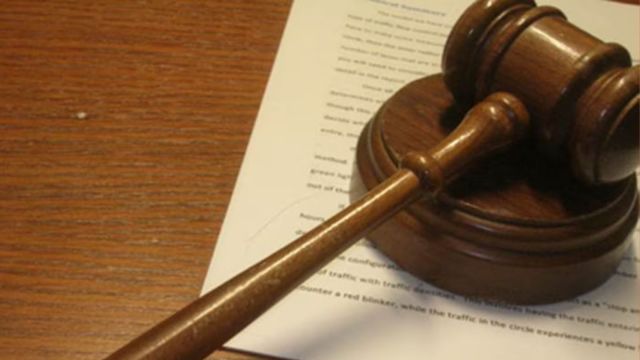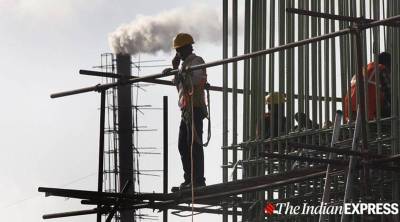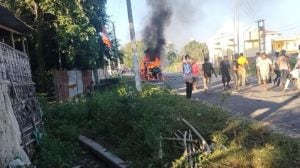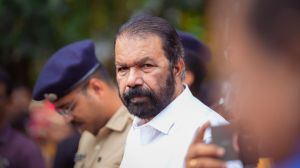Stay updated with the latest - Click here to follow us on Instagram
Hong Kong issues arrest warrants for 19 overseas activists accused of ‘subversion’; US reacts
The 19 individuals are accused of being involved in the "Hong Kong Parliament", an unofficial pro-democracy group that authorities claim sought to subvert state power.
 Hong Kong police allege that the group aimed to challenge the authority of the Chinese and Hong Kong governments. (Representational/File Photo)
Hong Kong police allege that the group aimed to challenge the authority of the Chinese and Hong Kong governments. (Representational/File Photo)The United States has criticised Hong Kong authorities for issuing arrest warrants for 19 pro-democracy activists based overseas. The move marks the largest number of such warrants issued under the city’s national security law. The activists are accused of subversion for their involvement in an unofficial group known as the “Hong Kong Parliament”.
Hong Kong police allege that the group aimed to challenge the authority of the Chinese and Hong Kong governments. Several of the individuals are already subject to earlier warrants, and police say further action may follow.
Why have the arrest warrants been issued?
The 19 individuals are accused of being involved in the “Hong Kong Parliament”, an unofficial pro-democracy group that authorities claim sought to subvert state power. The group is said to have organised a mock election and promoted the idea of self-determination for Hong Kong, including plans to draft a new constitution.
The Hong Kong police allege that these activities were attempts to unlawfully overthrow the government. The charges fall under the national security law imposed by Beijing in 2020 following large-scale protests in 2019.
Police said anyone supporting, funding or participating in the group could also face legal consequences.
Who has been named?
Among those named are businessman Elmer Yuen, political commentator Victor Ho, and activists Johnny Fok and Tony Choi. These four were already subject to previous arrest warrants, each carrying a reward of HK$1 million (approximately £95,000).
The other 15 individuals are also facing new warrants, with authorities offering HK$200,000 (£19,000) for information leading to their arrests. Some of them were reportedly involved in organising or running in the unofficial election, or taking oaths as councillors of the unofficial “parliament”.
One of those listed, Feng Chongyi, a professor at the University of Technology Sydney, dismissed the allegations. “They’ve got the power, they’ve got the influence overseas..they want to control everything even overseas,” he told The Guardian.
US and allies respond
US Secretary of State Marco Rubio told Reuters: “We will not tolerate the Hong Kong government’s attempts to apply its national security laws to silence or intimidate Americans or anyone on US soil.” He also said the move showed how the Hong Kong government “continues to erode the autonomy that Beijing itself promised to the people of Hong Kong following the 1997 handover”.
The UK’s Foreign and Home Secretaries issued a joint statement, quoted in The Guardian, calling the warrants “another example of transnational repression” and saying they damaged Hong Kong’s international standing. “The UK will not tolerate attempts by foreign governments to coerce, intimidate, harass or harm their critics overseas,” they said.
Australia strongly objects to Hong Kong authorities issuing arrest warrants for pro-democracy advocates in Australia. Freedom of expression and assembly are essential to our democracy.
— Senator Penny Wong (@SenatorWong) July 26, 2025
Australia’s foreign minister Penny Wong also objected, writing on X that “freedom of expression and assembly are essential to our democracy”. She added: “We have consistently expressed our strong objections to China and Hong Kong on the broad and extraterritorial application of Hong Kong’s national security legislation, and we will continue to do so.”
Beijing defends move
In response to the criticism, China’s embassy in the UK said the British government was interfering in internal affairs. “China urges the UK to abandon its colonial mentality, stop interfering in Hong Kong affairs and stop shielding criminals,” it said in a statement quoted by The Guardian.
Hong Kong police reminded the public that national security offences carry extraterritorial effect. In a statement, they said those who turn themselves in or help investigations may be considered for reduced punishment.
(With inputs from The Guardian and Reuters)



- 01
- 02
- 03
- 04
- 05




























